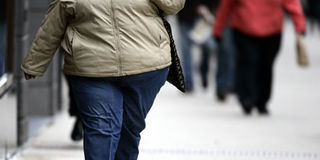HEALTH: Why eating at night will make you fat

Clinical Nutritionist Sona Parmar tells you why you should worry more about when you eat as opposed to what you eat
FILE PHOTO
According to a recent post on Facebook, calories are actually “tiny creatures that live in your closet and sew your clothes a little bit tighter every night”. As my patients fighting that tyre around their waist will testify, it may as well be true!
In my experience, people tend to worry more about what they eat as opposed to when they eat, and I think that can make a difference between a size 10 and a size 12.
According to a 2013 study published in the International Journal of Obesity, the early eaters lost approximately 12 per cent of their body weight, while late eaters lost only 8 per cent, even though they all followed the same diet and exercise regime. It turned out that the late eaters also ate fewer calories during breakfast and were more likely to skip breakfast altogether.
So is it worth changing the way you do things just for a measly 3 per cent? Well, let’s put it this way: if you’re a 70kg woman, three per cent means 2.1kg. Most women would be quite happy to lose that weight if it meant that they didn’t have to eat any less or exercise any more.
Why exactly is it that the timings make such a difference? Well, the authors of the study believe that rather than it being a question of the body being more efficient at burning calories at certain times of the day, it had more to do with that way of eating disrupting the internal body clock.
This is very much in line with Traditional Chinese Medicine (TCM) which believes that at certain times of the day, the liver, intestines and fat tissue are working very effectively, while at other times, they’re not doing very much at all.
In fact, previous research in mice has shown that consuming more calories later in the day seems to lessen the hormonal triggers that cause our fatty tissue to burn up fat reserves.
ASK SONA:
Will exercising more speed up my weight loss?
Probably not. There’s now a growing body of research that reveals that exercise actually does next to nothing for you when it comes to losing weight. Yes, it can improve your cardiovascular fitness; yes, it releases endorphins (feel-good hormones); and yes, it can tone those wobbly bits; but if it’s weight you’re looking to lose, forget it. In the words of the world-renown Mayo Clinic, general studies “have demonstrated that an exercise regimen is unlikely to result in short-term weight loss beyond what is achieved with dietary change.”




